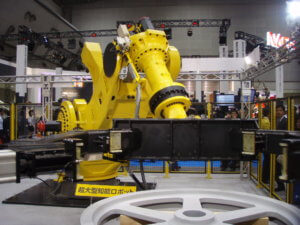What is the Technical Intern Training Program for Foreigners? An easy-to-understand explanation of the new system!
CONTENTS
- What is the Technical Intern Training Program for Foreigners? An easy-to-understand explanation of the new system!
- What is the Technical Intern Training Program for Foreigners?
- Past Problems About the Technical Intern Training Program
- Method of Acceptance of Technical Intern Trainees
- Flow of Technical Intern Trainees from Entry to Return from Japan
- What is a technical intern trainee?
- Benefits of accepting technical intern trainees
- Occupations that can accept technical intern trainees
- Roles of the supervising organization and the trainer company
- What is a supervising organization?
- What is a trainer company?
- Protection of Technical Intern Trainees
- Prohibition of Compulsory Technical Intern Training
- Prohibition of Contracts for Penalties and Damages
- Prohibition of Passport and Residence Card Storage
- Trainees can report to the minister
- Summary
What is the Technical Intern Training Program for Foreigners? An easy-to-understand explanation of the new system!
The number of foreigners currently living and working in Japan was more than 2.8 million as of June 2019, an increase of 98,323 (3.6%) from the end of the previous year, a record high. Most of them have permanent residency, but the next most are technical intern students. The number has increased by 12% from last year and is expected to increase in the future. This technical intern has recently been reborn as a new system due to various problems. If your friend is an intern trainee who works in Japan or is about to become an intern, make sure you understand the system and recognize your rights. If there is a problem, there is a telephone hotline where they can consult in their mother tongue for free.
According to the Japan International Cooperation Agency, a public interest incorporated foundation under the Cabinet Office, the purpose of the Technical Intern Training Program for Foreigners is to "Promotion of international cooperation to transfer skills, technologies, or knowledge accumulated in our country (Japan) to developing regions, etc., and thereby contribute to the "Human Resources Development" necessary for the economic development of those developing regions, etc." The purpose of the system is to transmit technology, not to hire people from overseas as cheap labor. Until now, there have been endless reports of Japanese employers treating technical intern trainees unfairly, including making them work for less than the minimum wage, and imposing unpaid overtime and long working hours. The "Act on Proper Technical Intern Training for Foreign Nationals and Protection of Technical Intern Trainees" (Technical Intern Training Act), which went into effect on April 1, 2017, clearly states that "Technical intern training shall not be provided as a means of cheap labor" and thus does not make up for Japan's labor shortage.
What is the Technical Intern Training Program for Foreigners?
Simply put, the technical intern training system for foreigners is a human resource development system for foreigners. The purpose is to pass on Japanese technology and knowledge to overseas technical intern trainees accepted by Japan and contribute to the economic development of their home countries after they return to their home countries.
The trainees come to Japan through various processes. First, they apply to the sending organization in their home country (sending agency). The sending organization will appropriately select candidates and serve as a bridge with Japan. The trainers are called host companies, and half of them are small companies with 10 or fewer employees. In any case, they will have an employment relationship with their trainers’ company and apply for a visa. If they can come to Japan safely, they will be given practical training as Technical Intern Training 1 for 1 year. After that, if they pass the examination, they will become Technical Intern Training 2, and they will be permitted practical training for 2 years. In addition, they can stay in Japan as a trainee for a total of five years for two years if they become a class 3 trainee. However, they have to pass the exam to get to 2 level and 3 level, and the target training types are limited.
Past Problems About the Technical Intern Training Program
Before the Technical Intern Training Program was revised, in the past it has been reported that various illegal activities have been committed by host companies and delivery organizations.
- The host company makes the technical intern work as a low-wage worker.
- The host company does not pay the technical intern.
- The sending organization mediates the technical intern and obtains an unreasonable profit.
In order to correct such unfair treatment of technical intern trainees, a law was promulgated in 2017 to ensure the proper conduct of technical intern training, and a new system of technical intern training is currently in place.
Method of Acceptance of Technical Intern Trainees
There are two types of systems for accepting foreign technical intern trainees: "individual company type" and "group supervision type". The latter is actually more than 95%.
Individual company type
This type refers to a system in which Japanese trainers (Accepted companies, etc.) directly accept employees of overseas subsidiaries, joint ventures and business partners by signing employment contracts.
Technical Intern Trainee [from foreign company] → Implementation of Technical Intern Training [by Japanese companies, etc.]
The "foreign company" mentioned above are running businesses that meet the following conditions.
- Branches, subsidiaries and joint ventures of Japanese institutions
- Offices that have traded with Japanese institutions for more than one year or have traded for more than 1 billion years in the past year.
Places of business recognized by the Minister of Justice and the Minister of Health, Labour and Welfare as having a close relationship with Japanese organizations
Group supervision type
The group supervision type is a system in which the supervising organization (Business cooperative, etc.) stands between the receiving company under its umbrella and the sending organization in a foreign country to support the acceptance of technical intern trainees.
[Overseas sending organizations]→ [supervising organization]→ [accepting enterprise]
The group supervision type accepts technical intern trainees in accordance with a bilateral arrangement (memorandum of cooperation) basically made between Japan and the sending country. Bilateral agreements stipulate that permission from the supervising organization and certification of the technical intern training program should be carried out appropriately.
Flow of Technical Intern Trainees from Entry to Return from Japan
The flow from the entry to the return of the technical intern is as follows.
Year 1 | Year 2 | Year 3 | Year 4 | Year 5 |
Classroom lesson→Practical Training | Practical Training | Practical Training | ||
Technical Intern Training (1) | Technical Intern Training (2) | Technical Intern Training (3) | ||
After you enter Japan, trainees will first receive a two-month training course (classroom lesson). The lesson mainly teaches Japanese and daily life in Japan. After that, they will start the practice. Technical intern trainees, regardless of whether they like to go up to the next level (status), are required to take a skills examination by the completion of each of Technical Intern Training (1), Technical Intern Training (2), and Technical Intern Training (3). This will be a guideline to measure whether they are a good supervisor or trainee. If the number of successful candidates is small, it means that they are not properly instructed and educated. Applications for the Technical Intern Training (1) must be submitted at least 6 months before completion, and applications for Technical Intern Training (2) and Technical Intern Training (3) must be submitted at least 12 months before completion. They have to take the exam, but if they don't pass it, they can't go on to the next level.
In addition, the period of acceptance of technical intern trainees is usually three years, and the period of acceptance for five years is limited to "Excellent trainee and management organization".
What is a technical intern trainee?

A foreign technical intern is a foreign trainee who enters an employment contract with a Japanese company based on the technical intern training system and works to learn skills (= Technology and knowledge).
Benefits of accepting technical intern trainees
The expected benefits of accepting technical intern trainees are as follows:
- Be able to make international contributions
- lead to revitalization within the company
- promote international exchange and understanding
- Be useful for overseas expansion
Foreign technical intern trainees are highly motivated and aspiring to work, which may give Japanese employees an opportunity to reconsider their attitude toward work. In addition, if foreign technical intern trainees can maintain their relationships after returning to their home countries, they can expect to gather local information and expand their networks. For companies considering international expansion, accepting technical interns will also help expand their business.
Occupations that can accept technical intern trainees
There are no restrictions on the type of job or work required for Technical Intern Training (1), but the following conditions must be met by the Technical Intern Trainee:
- It is not a simple work.
- A person who is 18 years of age or older and plans to engage in work utilizing the skills he/she has acquired after returning from Japan.
- There is a difficulty in acquiring the skills in their home country
- Receiving recommendations from the sending country or local public bodies
- Past experience in the same type of work as the technical intern training
- No security deposit shall be collected from the sending organization, supervising organization, implementing organization, etc. In addition, no contract stipulating penalties shall be concluded.
There are 82 job types and 146 types of wor covered by Technical Intern Training No. 2 (As of February 25, 2020).
Agriculture (2 Job Type 6 Work), fisheries (2 Job Type 9 Work), construction (22 Job Type 33 work), food manufacturing (11 Job Type 16 tasks), textiles and clothing (13 Job Type 22 tasks), machinery and metals (15 Job Type 29 tasks), others (16 Job Type 28 tasks), in-house certification type jobs and works (1 Job Type 3 Work). There is no space to put the specific job type and work name, so please check the website of Ministry of Health, Labour and Welfare for details.
These jobs and tasks are constantly changing in increasing numbers, so be sure to check for the latest information.
Roles of the supervising organization and the trainer company

There are two types of internship programs: the group management type and the company-specific type. Most of them are the former type, as described above. The supervising organization and the trainee (accepting enterprise), which are the key players in the system, must make efforts to ensure that foreign technical intern trainees receive appropriate and fulfilling practical training and that they are not unfairly treated.
What is a supervising organization?
A supervising organization is a non-profit organization that accepts technical intern trainees. Specifically, it is a business cooperative or a commerce and industry association. These supervising organizations check whether the trainees are properly implementing the technical intern training and provide guidance.
An organization which intends to conduct a supervised business must obtain permission as a supervising organization from the minister of the relevant minstry.
Requirement for the supervising organization
- The organization is not for profit.
- The applicant has sufficient ability to conduct business properly.
- The applicant has a sufficient financial basis to carry out the supervised business.
- Proper management of personal information
- The applicant has concluded a contract with a foreign sending organization for intermediation of technical intern trainees.
In order to increase the number of people accepted or extend the acceptance period to five years, it is necessary to satisfy the requirement of "good regulatory body" for the supervising organization.
- Proper system for auditing the implementation status of practical training and other operations
- Achievement of Skills for trainees, etc.
- Status of legal violations and problems
- Consultation and Support System
- Coexistence with Local Communities
If these requirements are scored and a perfect score (120 points) of 60% or more is met, then the organization can meet the "good regulatory body" criteria.
What is a trainer company?
A trainer is a company that actually accepts foreign technical intern trainees and conducts technical intern training. These institutions are responsible for implementing appropriate technical intern training in accordance with the Technical Intern Training Plan and for giving consideration to the lives of technical intern trainees.
Interns must prepare a technical intern training plan for each technical intern trainee and receive accreditation from the Institute for Technical Intern Training (an authorized corporation of the Ministry of Health, Labour and Welfare entrusted with the administration of this system). In the case of the group supervision type, the technical intern training plan is prepared under the guidance of the supervising organization.
In addition, in order to increase the number of trainees accepted or extend the acceptance period to five years, trainees must be certified by the Japan Institute of Technical Intern Training as "excellent trainer".
- Achievements in acquiring skills
- Proper system for implementing technical intern training
- Treatment of Technical Intern Trainees
- Status of legal violations and problems
- Consultation and Support System
- Coexistence with Local Communities
If these requirements are scored and a perfect score (120 points) of 60% or more is met, then the trainer meets the "good regulatory body" criteria.
Protection of Technical Intern Trainees

The "Act on the Proper Technical Intern Training for Foreign Nationals and Protection of Technical Intern Trainees (Technical Intern Training Act)" enacted in April 2017 provides for the protection of foreign technical intern trainees.
Prohibition of Compulsory Technical Intern Training
Compulsory technical intern training against the will of foreign technical intern trainees constitutes an unjust violation of human rights. Article 46 of the Technical Intern Training Act prohibits compulsory technical intern training.
Article 46 (1) The person supervising the technical intern training (referred to as "practical supervisor" in Article 48, paragraph (1).) or any officer or employee thereof (referred to as "Supervisors, etc." in the following Article.) must not force the technical intern training against the will of the technical intern trainee by means of assault, intimidation, confinement, or other unjust restraint on mental or physical freedom.
Prohibition of Contracts for Penalties and Damages
If it becomes possible for technical intern trainees to make contracts for penalty payment, there is a risk that they will be forced to engage in technical intern training against their will, resulting in human rights violations. Article 47 of the Technical Intern Training Act prohibits contracts for penalties and damages.
Article 47 The technical intern trainee, etc. shall not make a contract with the technical intern trainee, etc. (The term "technical intern trainee" means a person who is or intends to become a technical intern trainee. The same shall apply hereinafter in this Article.) or his/her spouse, lineal line or relative living together or any other person closely related to the technical intern trainee, etc. in terms of their social life to establish a penalty or an estimated amount of damages with respect to the non-performance of the contract pertaining to the technical intern training.
Prohibition of Passport and Residence Card Storage
Keeping your passport and residence card will restrict the movement of the technical intern. Therefore, Article 48 prohibits not only the keeping of passports and residence cards but also the restriction of freedom of private life.
Article 48 (1) The person who is to conduct the technical intern training or the implementing supervisor, or their officers or employees (referred to as "Persons involved in technical intern training" in the following paragraph.) must not retain the passport (The term "passport" means a passport as prescribed in Article 2, item (v) of the Immigration Control Act. The same shall apply in Article 111, item (v).) or residence card (The term "residence card" means the residence card provided for in Article 19, paragraph (3) of the Immigration Control Act. The same shall apply in said item.) of the technical intern trainee.
(2) Persons involved in the technical intern training shall not unreasonably restrict the technical intern trainee's freedom of movement or other private life.
Trainees can report to the minister
If you are treated unfairly by the trainee or the supervising organization, it will be a deterrent if you can report illegal activities. Therefore, Article 49 of the Technical Intern Training Act allows a technical intern trainee himself/herself to report illegal acts to the competent minister in his/her native language.
Article 49 In a case where the implementing organization or the managing organization, or their officers or employees (referred to as "Practicing training personnel" in the following paragraph.) have violated the provisions of this Act or an order based on this Act, the technical intern trainee may report such fact to the competent minister.
In the past, problems were limited to "improvement guidance" and "alert" but now the system is stricter and includes penalties such as "Rescission of License or Approval" and "business suspension order". There is also a multilingual telephone hotline where trainees can consult for free.
Summary
This time, we explained the technical intern training system and the protection for technical intern trainees.
- The Technical Intern Training Program for Foreigners is a system for passing on Japanese skills to technical intern trainees, who have acquired such skills, and who contribute to the economic development of developing countries.
- The term "foreign technical intern trainee" refers to a foreign trainee who enters an employment contract with a Japanese company under the Technical Intern Training Program and works to learn technical skills.
- The supervising organization and the implementing organization involved in the acceptance of the technical intern trainee need to make efforts to ensure that the foreign technical intern trainee receives appropriate and fulfilling practical training.
- The "Act on Proper Technical Intern Training for Foreign Nationals and Protection of Technical Intern Trainees" stipulates provisions such as "Prohibition of Compulsory Technical Intern Training" for the protection of foreign technical intern trainees.
Although the wages of technical interns must not fall below the local minimum wage or the specified minimum wage set by industry, the actual salaries they receive are very small. This is why we tend to see it as a cheap labor force, but don't forget the above. Use the system in consideration of the positive effects of revitalizing the workplace, contributing to the international community, and expanding business overseas.
- Categories
- Work in Japan: Japan Biz Cultural Words and 未分類
- Tags
- ginoujisshuu


